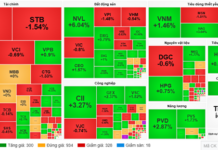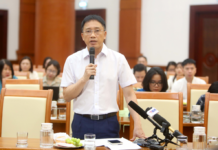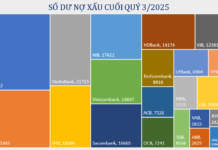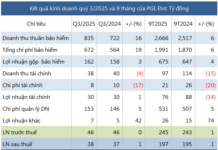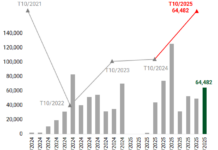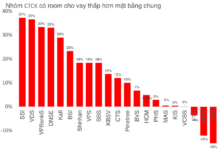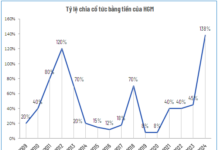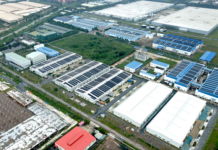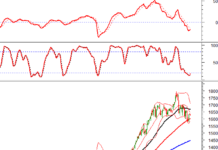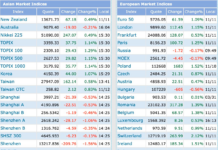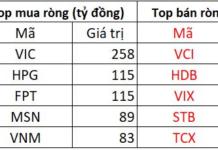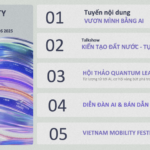In the ever-evolving landscape of consumer behavior, simply “selling a product” no longer equates to “getting it right.” Today’s Vietnamese consumers prioritize the overall experience, long-term value, environmental responsibility, and harmony with indigenous lifestyles. In response, many technology brands are reevaluating their offerings, asking themselves: “Are our products truly aligned with the needs and preferences of Vietnamese consumers?”
Better Choice Awards 2025 aims to address this very question. Going beyond a mere awards ceremony, it serves as a ranking platform for smart devices and platforms, with the ultimate goal of becoming a new reference system. By promoting greener, smarter, and more localized products, the awards aim to catalyze a market shift towards sustainability and cultural relevance.
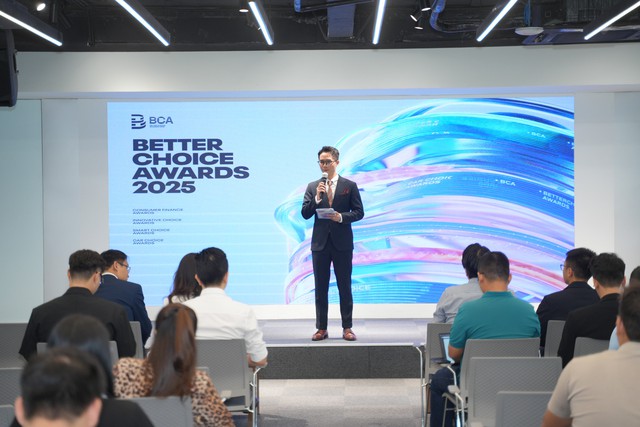
The press conference for the third season of Better Choice Awards was held on the morning of August 7.
Catalyzing New Consumption Trends: Green, Smart, and Aligned
Now in its third year, Better Choice Awards is doing more than just recognizing excellence. It is decoding new consumer behaviors and providing insights for brands striving to connect with Vietnamese users.
The awards go beyond superficial greenwashing. Across various categories, including “Outstanding Energy-Efficient Device,” “Electric Service Vehicle,” and “Green Technology Solution,” environmental considerations are evaluated based on practical data: consumption levels, production processes, repairability, and product lifespans. Better Choice Awards encourages brands not just to meet standards but to fundamentally restructure their products for sustainability, as Vietnamese consumers are increasingly scrutinizing and demanding more.
When it comes to smart technology, the awards don’t promote AI integration as a mere trend but emphasize practical user understanding. Personal devices, automobiles, and platform solutions are assessed based on their ability to deliver tangible value, including intuitive interfaces, behavior learning, and personalization. A product doesn’t need to be the most powerful to win; user-friendliness, ease of repair, and accessibility for the masses are equally important.
The concept of “alignment” is at the core of Better Choice Awards. This often-overlooked aspect has been overshadowed by the race for higher specifications, newer technology, and flashier marketing. By categorizing awards based on specific user groups (such as tech-savvy Gen Zers, families on a budget, new female drivers, ride-sharing drivers, and creatives), the awards highlight that each user group requires unique solutions. Victory lies not in trying to be all things to all people but in providing the right answers to the right people.
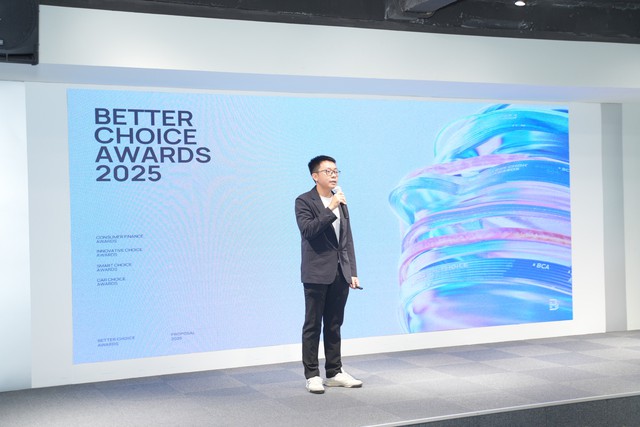
“Our goal is to create an award that has both innovative and practical value for users,” said Mr. Pham Xuan Ha, Head of the Better Choice Awards Organizing Committee.
An Ecosystem that Shapes the Market
What sets Better Choice Awards apart is its active engagement with the consumer journey, becoming an integral part of product development, brand building, and shifting societal perceptions.
Through a rigorous two-round evaluation process involving expert panels and community voting, along with detailed criteria tailored to each product group, Better Choice Awards has established a data-rich feedback platform with significant influence. With the participation of over 40 industry experts, reviewers, and KOLs in the fields of automotive, technology, and consumer finance, as well as a community of hundreds of thousands of voters, shortlisted brands are compelled to reassess their products through the lens of local consumers.

Better Choice Awards 2025 returns with prestigious categories honoring innovative products that embrace green, smart, and aligned consumption.
In practice, many brands have adjusted their marketing campaigns or product offerings based on feedback from the Better Choice Awards ecosystem. Certain car models now have special editions tailored for the Vietnamese market, and some wearable devices have been modified to be more user-friendly for seniors or first-time users. By setting new selection criteria, Better Choice Awards is inadvertently becoming a partner in the R&D processes of major brands.
Beyond scoring and awarding, Better Choice Awards has successfully conveyed a powerful message to the market: choices that are “just enough” and environmentally responsible are the smartest choices. This message also serves as a clear directive to brands: “To win, you don’t need to be the most prominent globally; you need to be the most relevant to Vietnamese consumers.”
As the market evolves and consumers become more discerning, Better Choice Awards is no longer just a tech industry event. It is evolving into a benchmark for a new consumer society. This “Make in Vietnam” award, organized by Vietnamese, judged by Vietnamese, and chosen by Vietnamese, is reshaping brand product thinking: not just about technological prowess, but about being green, smart, and aligned with Vietnam.
Better Choice Awards is an annual national-level prestigious award organized by VCCorp Joint Stock Company in collaboration with the National Innovation Center, under the guidance of the Ministry of Finance. With this year’s theme, “Soaring High,” and the overarching spirit of “Proud to be Vietnamese,” the award celebrates the spirit of breaking through limits, fostering innovation, and shattering old barriers.
In the context of remarkable advancements in personal finance (from digital banking and fintech to insurtech), the proposed Consumer Finance Awards category aims to recognize and encourage financial initiatives that cater to individual consumers. This category will provide a reputable platform for healthy competition among outstanding financial organizations and products, while disseminating intelligent financial solutions that enhance the experience and quality of life for Vietnamese citizens.
The awards are expected to kick off in early August and conclude in October 2025, with the registration and nomination process currently underway since July 24, 2025. For any inquiries regarding the preparation and procedures for submitting nomination dossiers, please contact us at 093.981.7900 or email [email protected] (Ms. Vi Hạnh).
The Meat Platform: Masan’s Visionary Leadership in Shaping Modern Consumer Trends
The processed meat market is experiencing a robust growth spurt, with consumers prioritizing food quality and safety alongside improved income. This presents a prime opportunity for industry players to meet the evolving demands of consumers and stay ahead of the curve. With a keen focus on delivering superior products, the market is poised for a significant transformation, elevating the standards of the industry as a whole.
The Better Choice Awards 2025: Unveiling the Year’s Exciting Innovations
The Better Choice Awards 2025 is back and better than ever, with a host of exciting new developments. This year’s awards have been expanded to include a wider range of categories, incorporating the latest advancements in AI and consumer finance. With these innovations, the awards promise to be a groundbreaking platform for creative products aimed at the Vietnamese consumer market.
“Embracing Vietnamese Products”: The Highlighted Message at Better Choice Awards 2025
Better Choice Awards 2025 is not just a showcase of technological advancements, but a celebration of the integral role that consumers play in driving innovation. This year’s theme, “Embracing Vietnamese Products,” emphasizes the idea that local consumption behaviors can empower and nurture the growth of domestic products.
The Tasty Revolution: Masan’s Meat Segment Surges Ahead in the New Consumer Wave
The processed meat market is experiencing a robust growth phase, with consumers prioritizing food quality and safety alongside improved income. With a 23% revenue growth in Q2 2025 and a 34% contribution margin, Masan MEATLife is leveraging its strategic focus on premium products and efficient utilization of its internal consumer-retail ecosystem.

